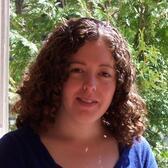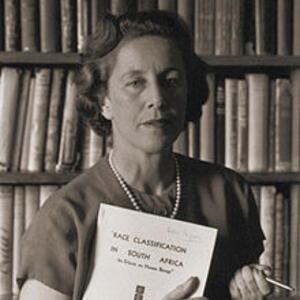Mandela, Suzman, and All Those Who Stand Together
It was beautiful, last month, listening to the many tributes that went out for Nelson Mandela in the wake of his death. I wanted to say something about my own feelings about the loss of this man who embraced his enemies and helped transform a country, but I felt like I didn’t have the right. What could I—a Jewish-American white woman—have to say? Then a colleague suggested that I write about Helen Suzman, whose death we remember this week. I drew a blank. Helen who?
Helen Suzman was a member of the South African Parliament for thirty-six years, and for thirteen of those years she was the only member of the Progressive Party, a lone voice speaking out against apartheid from within the government. In an era of strict censorship, her questions in parliamentary sessions helped illuminate for South Africans the terrible situation that was unfolding in their own country. In one famous exchange, when Suzman was accused by a cabinet minister of embarrassing South Africa in the world’s eyes, she responded, “It is not my questions that embarrass South Africa, it is your answers.” Calling herself “an honorary ombudsman for all those people who have no vote and no member of Parliament,” she not only advocated for the rights of blacks, she also fought for women’s rights and for humane treatment of political prisoners. After meeting Mandela during a visit to Robben Island prison to inspect conditions there, she told Parliament that he was the one man who could bring a peaceful resolution to the problem of apartheid. At a time when Mandela, still in prison, could not be quoted or have his photograph published, Helen Suzman played a valuable role in drawing attention to his plight and making the country and the world aware of him.
So why isn’t she better known? Perhaps it’s due to her insistence on struggling to change the pro-apartheid government from within instead of fighting the system head-on. A more obvious reason Helen Suzman is less well known than many of her freedom-fighting counterparts is that, in the long narrative of black South Africans fighting for equality, there isn’t an obvious place for the story (or voice) of a white Jewish woman.
We need to focus on the emerging voices of black heroes. But something is lost when that becomes the only story, when the voices of those outside of that group are erased from the narrative. Jewish South Africans, because they were both white and not-white, straddled the boundary between outsiders and insiders, able to both see the injustice of the system and use their “white” privilege to effect change. We saw the same thing happen in the US Civil Rights Movement, when young Jews and other liberal whites went South to register black voters and participate as Freedom Riders, sometimes at the cost of their lives. When we forget those stories, we forget that we have a responsibility to speak out for others as well as for ourselves. We begin to think it’s not our problem, or we worry that our offer to help will be seen as intrusive outside interference. We forget that every successful revolution is wrought by hundreds and thousands of invisible hands, not just by the towering heroes. Remembering that is the best way to honor not just Mandela’s life, but Helen Suzman’s as well.
On JWA:
Encyclopedia entry for Helen Suzman
Remembering Helen Suzman
On the Web:
BBC interview
Legendary Heroes of Africa
Statement from Nelson Mandela Foundation for Helen Suzman’s death








I would like to say how much I enjoyed your tribute to Helen Suzman ; a woman who was so committed to 'true' justice. My knowledge of her existence was a serendipitous event. Some years ago I requested from a friend, details of the actress: Janet Suzman, and ,to my delight ; received a summary of Helen Suzman. Your article will no doubt: enchant many who as yet, are unacquainted with her story. Sincere wishes. E.D.F.
In reply to <p>I would like to say how by Eden D fairbanks
Thank you so much! She really was an incredible woman.